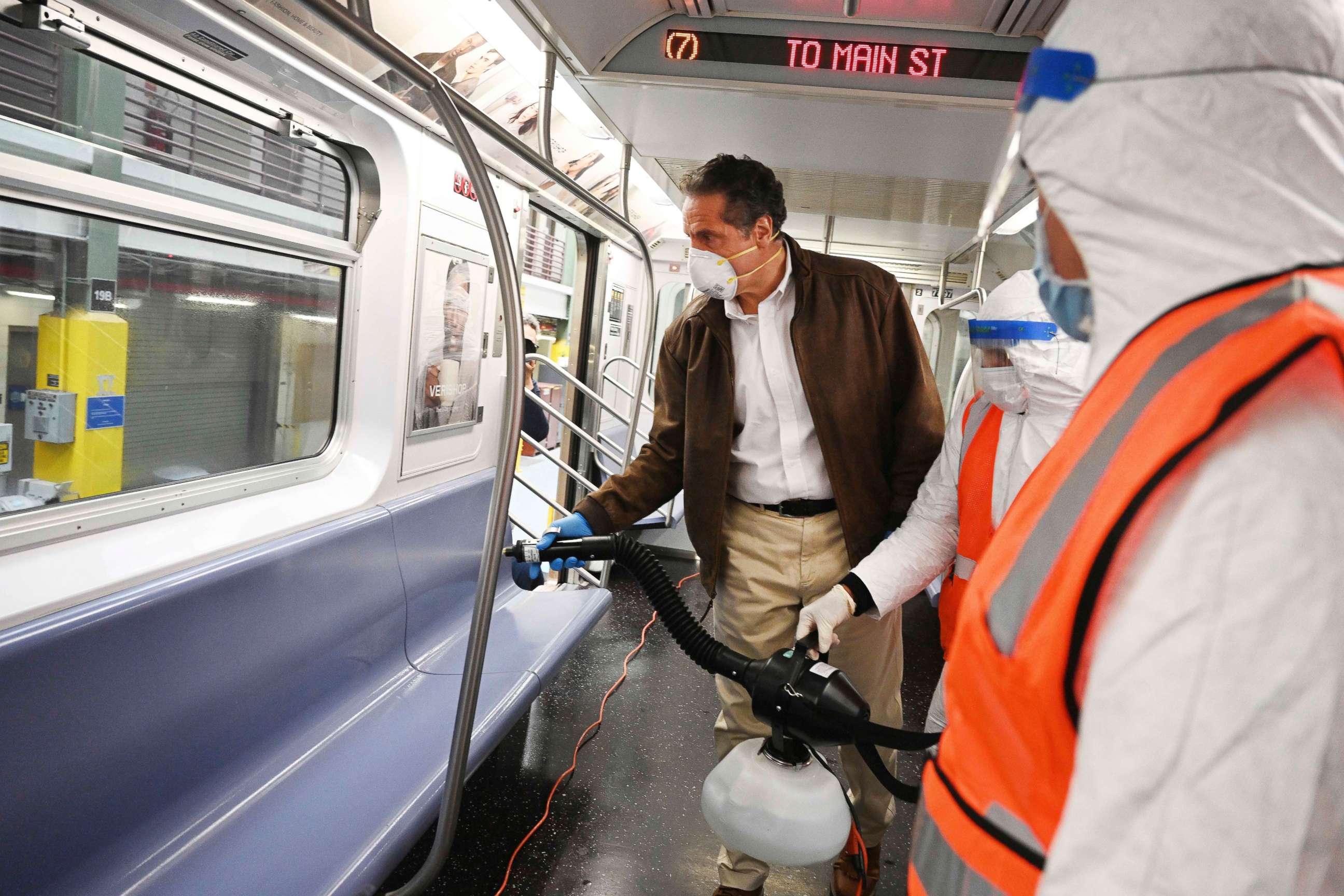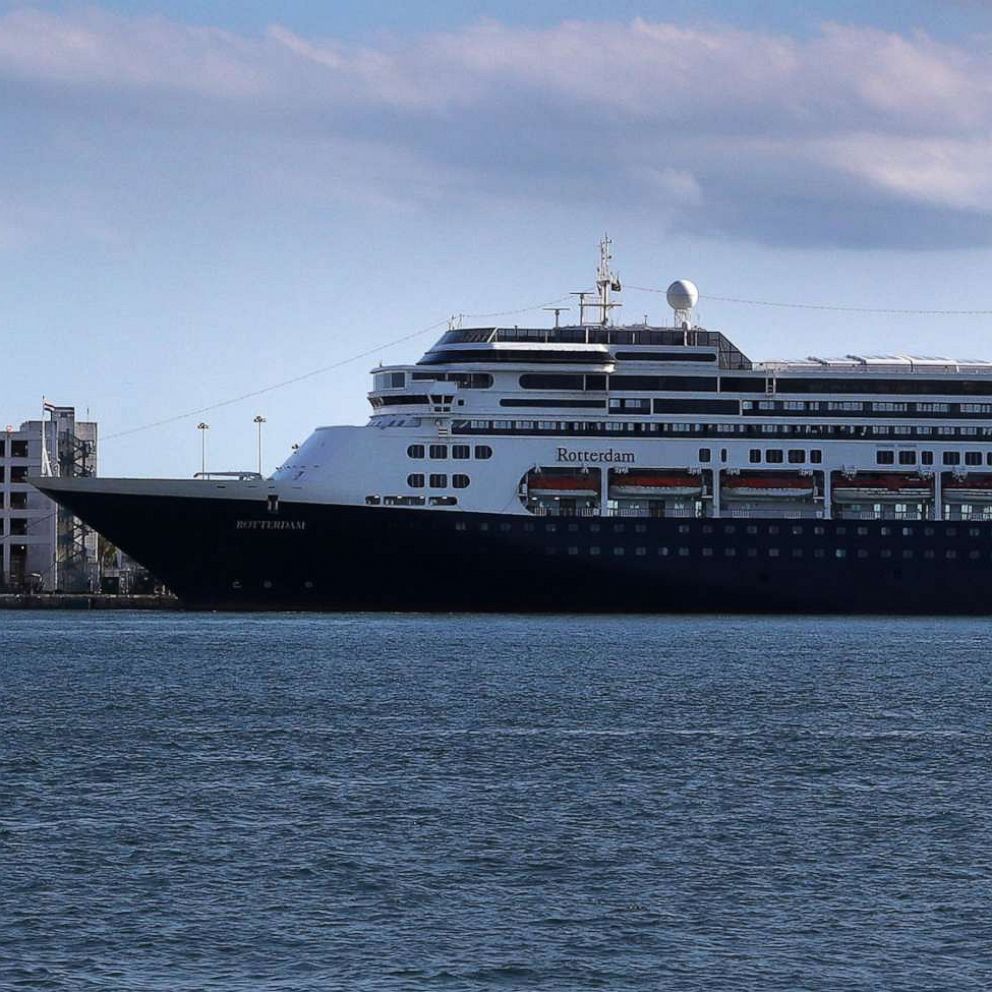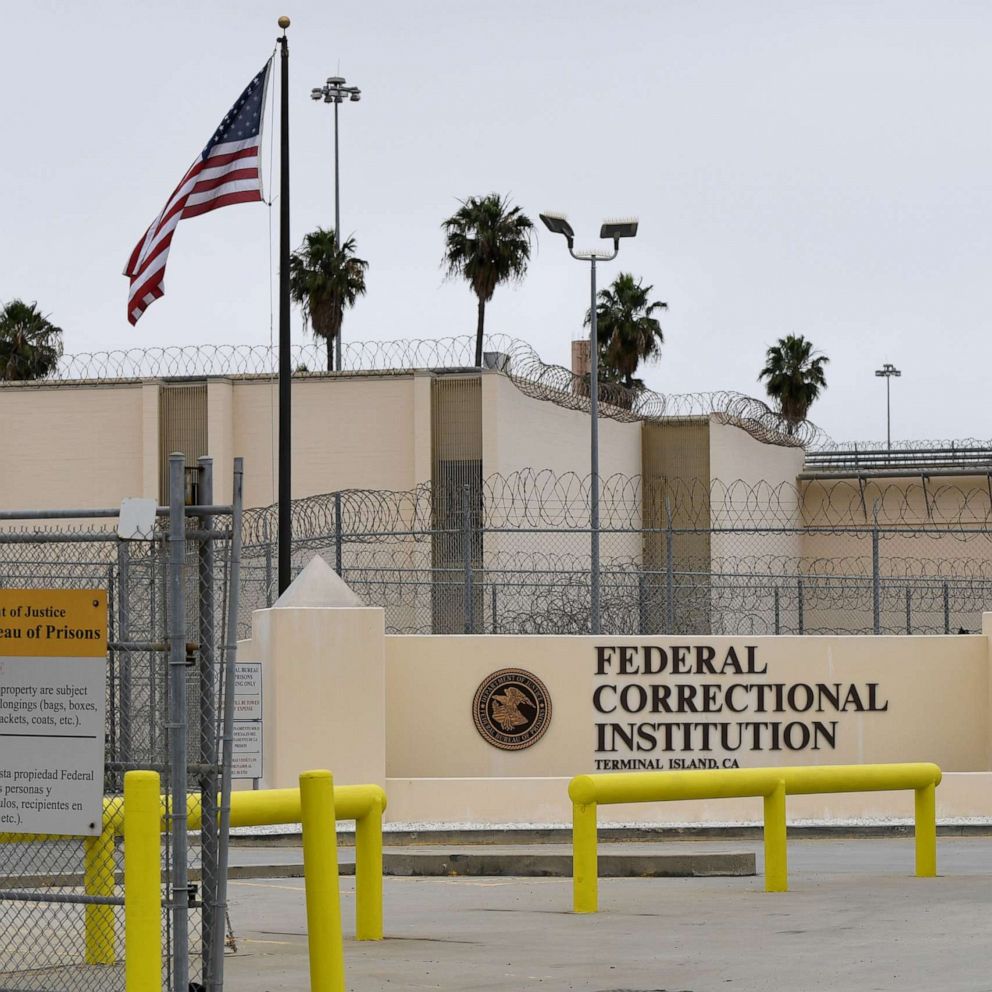Justice Dept. files statement supporting church in legal battle over coronavirus lockdown
AG William Barr is challenging restrictions he says unfairly target churches.
The novel coronavirus has now killed more than 244,000 people worldwide.
More than 3.4 million people across the globe have been diagnosed with COVID-19, the disease caused by the new respiratory virus, according to data compiled by the Center for Systems Science and Engineering at Johns Hopkins University. The actual numbers are believed to be much higher due to testing shortages, many unreported cases and suspicions that some governments are hiding the scope of their nations' outbreaks.
Since the first cases were detected in China in December, the United States has become the hardest-hit country, with more than 1.1 million diagnosed cases and at least 67,674 deaths.

Sunday's biggest developments:
Here's how the news developed Sunday. All times Eastern.
8:45 p.m.: DOJ filing supports church in lockdown legal battle
The Justice Department has filed a statement of interest in support of a church embroiled in a legal battle with the commonwealth of Virginia after its pastor was issued a criminal citation for hosting a service in violation of the state's stay-at-home order.
It is the second action of its kind by the Justice Department as Attorney General William Barr seeks to crack down on social distancing restrictions that he says unfairly target religious institutions.
On April 5, Lighthouse Fellowship Church, a congregation in Chincoteague Island, allegedly hosted a 16-person service in violation of the governor's executive orders banning in-person religious services of more than 10 people. The church's pastor received a criminal citation and summons, which carry penalties of up to a year in jail and a $2,500 fine.
Lighthouse sued and was denied a request for preliminary relief by the district court. The Justice Department's statement of interest says the executive orders may violate the church's constitutional right to freedom of religion.
"The Commonwealth of Virginia has offered no good reason for refusing to trust congregants who promise to use care in worship in the same way it trusts accountants, lawyers, and other workers to do the same," Assistant Attorney General Eric Dreiband said in a statement.
The Justice Department says in the statement that it is not taking a general position on Virginia's stay-at-home order, but instead is arguing that the order in this case unfairly targeted Lighthouse Fellowship Church in comparison with other commercial institutions.
"The Commonwealth cannot treat religious gatherings less favorably than other similar, secular gatherings," said G. Zachary Terwilliger, the U.S. Attorney for the Eastern District of Virginia.
7:50 p.m.: NYPD issues summonses to enforce social distancing
New York City is cracking down on residents who don't observe social distancing guidelines.
Officers made three arrests and issued 89 summonses related to social distancing violations on Saturday, according to an NYPD statement Sunday.
NYPD officials said earlier that 51 summons had been issued.
New York City police dispatched 1,000 officers over the weekend to enforce social distancing during warmer weather, according to The Associated Press.
Mayor Bill de Blasio instructed the NYPD to increase enforcement in Manhattan's Hudson River Park due to reports of crowded scenes.
"The vast majority of New Yorkers are sticking to social distancing. But some are not getting the point," he said on Twitter Sunday afternoon. "Anyone who ignores instructions by an officer gets a summons."
The three arrests Saturday were all related to an incident in Manhattan's East Village that "started out as a social distancing enforcement," Commissioner Dermot Shea said.
One of the arrests was caught on video and shows a Taser-wielding officer slapping and punching a suspect. The arrest is being investigated by the NYPD's Internal Affairs Bureau and an officer was placed on modified duty, Shea said.
1:50 p.m.: Uber to require drivers, riders to wear face masks
Uber will require both drivers and riders to wear face coverings, a spokesperson confirmed to ABC News.
The policy will be implemented in several countries, including the United States, soon, the spokesperson said.
"We'll communicate updates directly to users when ready, but in the meantime, we continue to urge all riders and drivers to wear masks or face coverings when using Uber," Uber said in a statement.
The ride-sharing company is in the process of developing technology to detect whether or not drivers are wearing face coverings before they start accepting trips, the spokesperson said. It also is working on ways to hold riders accountable.
In early April, Uber began shipping disinfectant sprays and millions of face masks to drivers and delivery people worldwide, as well as started urging riders to wear face coverings.
12:45 p.m.: Northeast to form medical supply purchasing consortium
Seven Northeast states are launching a regional purchasing consortium to procure medical supplies during the coronavirus pandemic.
New York, New Jersey, Connecticut, Pennsylvania, Delaware, Rhode Island and Massachusetts will join forces in buying personal protective equipment (PPE), ventilators and more, New York Gov. Andrew Cuomo announced on Sunday during his daily briefing.
The consortium will make the states more competitive globally in purchasing and obtaining sought-after medical supplies and potentially save taxpayers money, Cuomo said. New York State has bought $2 billion of medical supplies this year from China and elsewhere, the governor said. The seven states in total have spent about $5 billion, he said.
"We have trouble still getting the equipment and just buying the equipment, because these vendors on the other side, they're dealing with countries, they're dealing with the federal government. Why should they do business with one state when they can do business with an entire country?" Cuomo said. "This consortium will help us get the equipment and get it at a better price."
Cuomo said the states will identify the total amount of equipment they need and share notes on vendors. There will also be an emphasis on purchasing in the United States.
The consortium will also focus on increasing testing capacity, Pennsylvania Gov. Tom Wolf said during the briefing.
"We really need to work together to build the capacity to test or we are not going to be able to give our citizens the confidence they need to go back to work," Wolf said. "They are not going to have the confidence that we need them to have to go back to school or back to the store or to go back to worship."
The consortium will work in coordination with the federal government, Cuomo said.
"Whatever help they give us is great, but it is also clear from the federal government that it is up to governors," Cuomo said. "So whatever we can do on our own so we are not reliant on anyone, that is the best."
During the briefing, Cuomo also announced that New York State will require all hospitals to have a 90-day supply of PPE. The amount would need to meet the rate of use during the worst of the COVID-19 crisis.
11 a.m.: People in need of food could double to more than 2 million in NYC
Seeing a massive increase in the number of food-insecure people, New York City Mayor Bill de Blasio said on Sunday that he wants to ramp up food delivery to 1 million meals a day.
He said that before the coronavirus pandemic hit, New York City had about 1.2 million people who were experiences some level of food insecurity.
"That number may have grown by a million," de Blasio said during a coronavirus briefing. "There could be as many as 2 million or more New Yorkers experiencing food insecurity now or will be experiencing it in the coming weeks."
He said the city now has the capacity to deliver up to 3.1 million meals a week, but would like to see that grow to 1 million a day. He called on nonprofits groups, staff food-distribution sites and community organizations to help the city feed people who "just weeks ago considered themselves solidly middle-class or working class."
The mayor also blasted White House economic advisor Kevin Hassett for saying on Saturday that a "phase four" stimulus package might not be necessary.
De Blasio said Hassett appears bent on "saving money rather than protecting people."
"I was disgusted when I heard these comments because it sounded like the comments not only of a cheapskate but someone who just didn't care," de Blasio said. "So I hope President Trump will renounce these comments immediately."
During an interview Saturday on Fox News, Hassett noted that some states appear to be opening up their economies safely and faster than expected.
"I think right now because there's been good news really, that the opening up is starting to happen faster than we expected, appears to be doing so safely, then there is a chance that we won't really need a phase four," Hassett said.
De Blasio said the city is $7.1 billion in the hole and that it appears Hasset has an "absolute misunderstanding" of what is happening in New York and in other areas across the country that are still steeped in the battle against the virus. He added that without another federal stimulus package, first responders, including doctors and nurses now saving lives in public hospitals, could be furloughed.
"If we don't get help from Washington, that is what will happen," de Blasio said.
10 a.m. Ohio governor says his face mask mandate went 'too far'
One of the first U.S. governors to implement statewide closures amid the novel coronavirus outbreak says he went "too far" by mandating people to wear face masks in stores.
"It became clear to me that that was just a bridge too far. People were not going to accept the government telling them what to do," Ohio Gov. Mike DeWine, a Republican, said on ABC's "This Week."
DeWine, who closed schools in his state on March 12, rescinded a statewide order last week requiring face masks to be worn in stores, writing on Twitter that it became clear to him some Ohioans found it "offensive."
9 a.m.: 2.2 million small business loans approved in round 2 of PPP
About 2.2 million small business loans totaling $175 billion have been approved in the second round of the federal government's Paycheck Protection Program (PPP), officials said on Sunday.
While more loans were handed out in this round, the average PPP loan is around $79,000, which is much smaller than the $200,000 loans businesses got in the first round of the program.
"Since the launch of PPP on April 3, SBA has processed over 3.8 million loans for more than half a trillion dollars of economic support in less than one month," reads a joint statement issued by U.S. Small Business Administration (SBA) Administrator Jovita Carranza and U.S. Secretary of the Treasury Steven Mnuchin.
Nearly 500,000 of the loans were made by lenders with less than $1 billion in assets and non-banks, including community development financial Institutions, certified development companies, microlenders, and farm credit-lending institutions, according to Carranza and Mnuchin. More than 850,000 loans, or about a third of those approved, were made by lenders with $10 billion in assets or less, they said.
7:41 a.m.: WHO official says false-positive tests caused by dead lung cells in recovering COVID patients
WHO technical lead Maria Van Kerkhove in an interview Sunday on BBC's 'The Andrew Marr Show', responding directly to the report in April that some COVID-19 patients in South Korea tested positive again afterthought to have had recovered.
"What they're finding in some individuals, after they test negative, after a week or two or even longer, they're finding that they're testing positive again. And what is actually happening is as the lungs heal there are parts of the lungs that are dead cells that are coming up that are testing, there are fragments of those lungs that are actually testing positive for PCR. It's not infectious virus, it's not reinfection it's not reactivation, it's actually part of the healing process that is captured as being positive. So that's something that's really interesting," Kerkhove said.
On the question if people can be reinfected? They don't know yet.
"What we're learning right now is, when somebody is infected with COVID-19, they develop antibodies and they develop part of an immune response, one to two to three weeks after infection. What we're trying to understand is in that antibody response does that mean that they have immunity? Does it mean that they have a strong protection against re-infection? And if so, how long that protection lasts. We don't know the answer to that yet."
6:44 a.m.: UK Prime Minister Boris Johnson talks about government's contingency plan if he died from his coronavirus infection
U.K. Prime Minister Boris Johnson said that the British government had a contingency plan for his death as he battled COVID-19 in an intensive care unit last month in an interview with The Sun newspaper published on Sunday.
Johnson, 55, returned to work last Monday about a month after testing positive for COVID-19 where he spent 10 days in isolation in Downing Street before he was taken to London's St Thomas' Hospital and placed into an intensive care ward.
"I was told I had to go into St Thomas'. I said I really didn't want to go into hospital. It didn't seem to me to be a good move but they were pretty adamant. Looking back, they were right to force me to go," Johnson said in the interview. "They had a strategy to deal with a 'death of Stalin'-type scenario. It was a tough old moment, I won't deny it."
Johnson confirmed that doctors discussed invasive ventilation to treat him.
"The bad moment came when it was 50-50 whether they were going to have to put a tube down my windpipe," he said. "That was when it got a bit ... they were starting to think about how to handle it presentationally. The doctors had all sorts of arrangements for what to do if things went badly wrong ... The bloody indicators kept going in the wrong direction."
Johnson continued: "I was in denial because I was working and I kept doing these meetings by video-link. But I was really feeling pretty groggy ... I was feeling pretty wasted, not in an intoxicated way, but just, you know, pretty rough."
1:55 a.m.: NFL spokesman confirms that the NFL plans to begin season on time
The National Football League confirmed that they will release its full 2020 schedule later this week which includes a season opener on Sept. 10 and Super Bowl LV scheduled to be played at Raymond James Stadium in Tampa Bay, Florida, on Feb. 7 in spite of the coronavirus pandemic.
"We plan to start on time," said NFL spokesman Brian McCarthy.
NFL executive vice president Troy Vincent told The Associated Press this week that the league is doing "reasonable and responsible planning" regarding health and safety during the coronavirus pandemic.
Even though the league has not made any alterations to its fall plans, it has, however, been evaluating contingency plans in case things are not able to go ahead as planned.
One of those contingencies is delaying the season until mid-October, according to the Sports Business Journal. Playing games in empty stadiums and eliminating bye weeks have also been discussed as potential options on the table.
One option not on the table, according to ESPN, is gathering players at a centralized location to execute a season as the NBA and MLB have discussed ideas like playing at a neutral site such as Walt Disney World, Las Vegas or Arizona.
For now, the NFL and NFLPA have agreed to keep buildings closed until every state in which a team resides lifts its stay-at-home mandate and teams are currently preparing to conduct offseason workouts virtually instead of in person.
NFL commissioner Roger Goodell announced last week that he will not accept a salary during the pandemic.
The NFL draft that was held last month was the most-watched in league history and the NFL raised more than $100 million for coronavirus relief during the draft.
10:54 p.m.: City drops mask requirement over fears of violence
The city of Stillwater, Oklahoma, has amended an emergency proclamation requiring people to wear face coverings in public after threats of violence.
In a statement, Stillwater City Manager Norman McNickle said that in three hours on May 1, while face coverings were mandatory inside stores in the city, employees were "threatened with physical violence" by people who "cite the mistaken belief the requirement is unconstitutional." One person even threatened an employee with a gun for asking them to wear a mask, according to McNickle.
"It is further distressing that these people, while exercising their believed rights, put others at risk," McNickle said in a statement. "As mentioned, there is clear medical evidence the face coverings prevent COVID-19 spread; they are recommended by both the CDC and the Oklahoma State Department of Health. The wearing of face coverings is little inconvenience to protect both the wearer and anyone with whom they have contact. And, an unprotected person who contracts the virus can infect their own loved ones and others."
McNickle and Stillwater Mayor Will Joyce reversed the emergency proclamation late Friday. The city will still require store workers to wear masks, but with the amendment citizens are now just "strongly encouraged" to wear coverings, instead of requiring it.
Stillwater has a population of about 50,000 and is the location of Oklahoma State University. The university sent students home in mid-March and conducted classes online the rest of the semester.
Tune into ABC at 1 p.m. ET and ABC News Live at 4 p.m. ET every weekday for special coverage of the novel coronavirus with the full ABC News team, including the latest news, context and analysis.
ABC News' Ahmad Hemingway, Mina Kaji, Joshua Hoyos, Jack Arnholz and Alexander Mallin contributed to this report.







